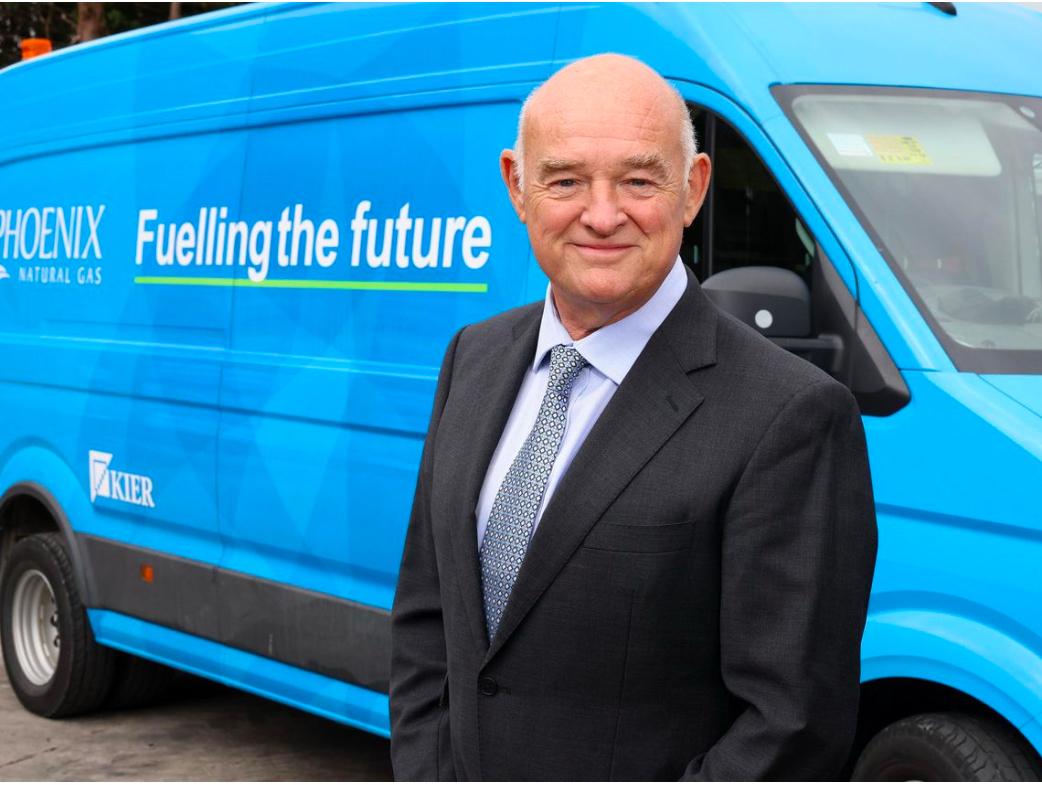In 2022, the Northern Ireland Assembly passed the Climate Change Act, which set out mandatory greenhouse reduction targets for 2030 and 2040, with a final target of Northern Ireland being at least carbon neutral by 2050.
Currently, Northern Ireland is working to generate 80 per cent of its electricity from renewable sources by 2030 to support that goal. However, the elephant in the room is how we heat our homes and businesses to meet these targets.
Currently, electricity is not the primary source of household heating in Northern Ireland. Most households here heat their homes by burning fossil fuels, such as home heating oil, coal, or natural gas.
So, how do we meet these net zero goals while allowing us to heat our homes to an adequate standard at an affordable price?

Could we, for example, change our current energy ownership model to develop a consumer-owned Northern Ireland heating network company that actively works with local circumstances to meet the 2050 goals and reinvest any profits in the local economy to reduce consumer bills?
£800m investment
Northern Ireland began the roll-out of natural gas in 1996. Today, it provides a pipeline infrastructure covering most of our major towns and cities, from Derry/Londonderry in the North, Newry in the South, Belfast in the East, and Enniskillen in the West.
To date, circa £800 million has been invested in Northern Ireland's natural gas industry through private ownership. This has enabled the construction of over 6,000 km of gas pipeline and the connection of 332,000 homes and businesses.
NEW THINKING: Peter Dixon was at the helm of Phoenix Gas for over two decades
Could this industry now evolve, for the benefit of all Northern consumers, to provide households and businesses with carbon-neutral heating by 2050?
We already have one successful consumer-owned company, Mutual Energy. They own and operate the electricity interconnector, the gas pipeline between Northern Ireland and Scotland, the gas transmission pipeline in Greater Belfast, and the gas transmission pipeline to the west of Northern Ireland. Northern Ireland consumers own Mutual Energy; it has no shareholders, and the money it makes is reinvested for the long-term benefit of energy users in Northern Ireland.
An interesting interview on Talkback with former Phoenix Gas chief exec & chairman Peter Dixon who is floating the idea that Phoenix should be taken into some form of public or mutual ownership.
— JPCampbellBiz (@JP_Biz) January 14, 2025
Currently, the gas distribution businesses in Northern Ireland are privately owned, as the government could not afford the £500m investment initially needed to develop the network. Under this private ownership model, any profits are paid to the shareholders/owners. Other than owning the debt to finance the business, the owners provide little other value.
Stable and Established
The gas distribution network is now largely built out, and a stable and established gas industry has evolved to support this infrastructure. The gas distribution networks in Northern Ireland (Phoenix, Firmus, and Evolve) could be brought together to establish a new mutualised company that focuses on developing net-zero heat networks at an affordable price for all consumers. The mutualised company would be owned by Northern Ireland consumers and focused on the needs of the community that it serves.
The time is right, and the costs involved in switching from private to public ownership are relatively small compared to the long-term benefits it will provide consumers and businesses.
Various legislative and regulatory hurdles must be overcome to enable this, but it should happen if the political will exists.
Consumers will then be able to hold the local management of this new public company accountable so that it benefits local hard-pressed families and businesses when needed most.
If we are going to meet our net zero targets in a manner that supports consumers, we need to think “outside the box” and boldly use our assets to our local advantage.
Peter Dixon began his career at the age of 16 as a gas engineer in with the Gas Corporation in Liverpool. Initially fast-tracked through the British Gas hierarchy to lead key strategic projects in the early 1990s. He joined Phoenix in February 1997 during its fledging phase. The development of the gas industry in the North during Dixon’s term is recognised as one of the most successful greenfield projects of its time. He was appointed to the Phoenix board and served as Group CEO until 2014. More recently, he served as Group Chairman from 2014 until April 2024, when he stepped down from this role.




